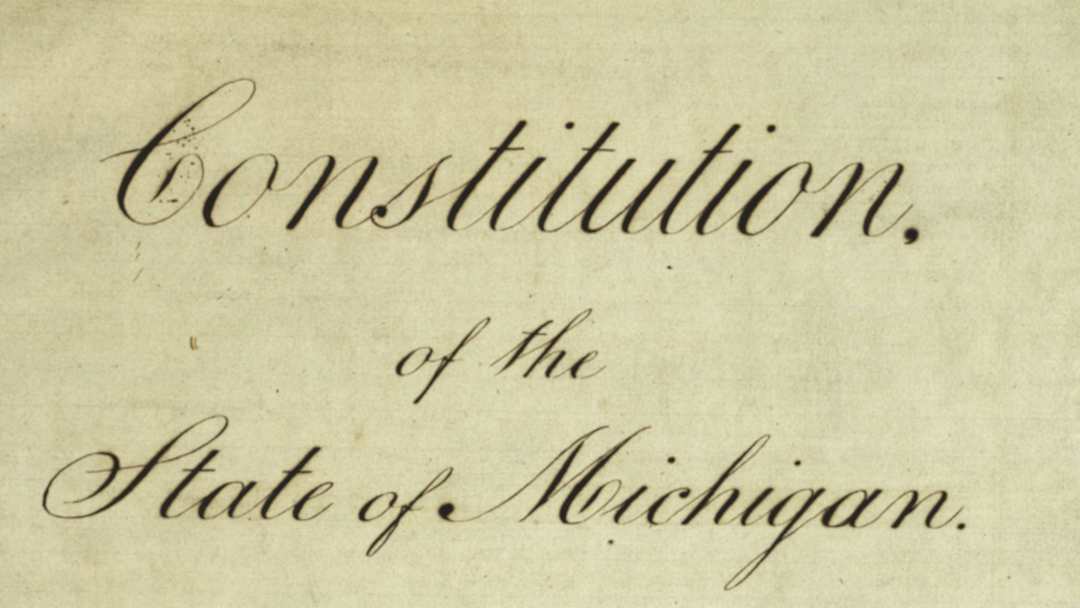These clauses protect property rights and maintain a balance between public needs and individual ownership
The Takings Clauses of the United States and Michigan Constitutions are pivotal components of property law, ensuring that private property is not seized by the government without fair compensation. These clauses protect property rights and maintain a balance between public needs and individual ownership.
United States Constitution: The Fifth Amendment
The Takings Clause is embedded in the Fifth Amendment of the U.S. Constitution, which states, “nor shall private property be taken for public use, without just compensation.” This clause has two primary components: public use and just compensation.
Public Use: The government can only take private property if it is for a public purpose. Historically, this meant projects like highways, schools, or public buildings. However, the interpretation has broadened over time. The landmark case Kelo v. City of New London (2005) expanded public use to include economic development, where the government justified the taking by claiming it would benefit the community economically (Michigan Public).
Just Compensation: The government must provide fair market value for the property taken. This is determined through an appraisal process, though disputes can arise regarding the value. The aim is to ensure the property owner is not financially disadvantaged by the taking.
Michigan Constitution: Article X, Section 2
The Michigan Constitution mirrors the Fifth Amendment’s Takings Clause with some distinct nuances. Article X, Section 2 states, “Private property shall not be taken for public use without just compensation therefor being first made or secured in a manner prescribed by law.”
Public Use: Michigan adheres to the federal standard of public use but has specific state-level interpretations and applications. Following the Hathcock v. Wayne County (2004) decision, Michigan imposed stricter limitations on takings for economic development compared to the broader interpretation allowed by Kelo at the federal level. Hathcock overturned previous rulings that permitted takings for economic development unless the project served a clear public interest, such as addressing blight (Michigan Public).
Just Compensation: Similar to the federal standard, Michigan requires fair market value compensation. The state also provides for additional compensation mechanisms, including potential reimbursement for relocation expenses in certain cases.
Legal and Social Implications
The Takings Clauses aim to protect individuals from the loss of property without proper cause or reimbursement, balancing individual rights with community needs. These clauses ensure that while the government can perform functions beneficial to the public, it cannot arbitrarily or unfairly deprive individuals of their property.
Controversies and Challenges
Broad Interpretation of Public Use: Cases like Kelo have sparked debates on the limits of public use, with critics arguing that broad interpretations can lead to abuse, where private property is taken for private development under the guise of public benefit.
Determination of Just Compensation: Disputes often arise over what constitutes fair market value, with property owners frequently contesting government appraisals.
State vs. Federal Standards: States can impose stricter standards than those set by federal rulings, as seen in Michigan’s response to economic development takings post-Hathcock. This creates a patchwork of interpretations and applications across the country, affecting property rights differently depending on the state.
Recent Developments
The Michigan Supreme Court’s recent ruling in Rafaeli, LLC v. Oakland County emphasized that surplus proceeds from tax-foreclosed property sales should return to former homeowners, underscoring the protection against governmental overreach and unjust enrichment. This ruling aligns with the principles of the Takings Clauses, ensuring fair treatment and compensation for property owners (Michigan Public).
Conclusion
The Takings Clauses of the United States and Michigan Constitutions serve as vital safeguards for property rights, mandating that any governmental taking of private property must be for a public use and with just compensation. These clauses continue to evolve through judicial interpretations and legislative adjustments, reflecting ongoing efforts to balance public interests with private property rights.
Read here:
Legal Counsel and Your Rights
When facing legal challenges, particularly in criminal cases, it is advisable to seek legal counsel immediately.
An experienced attorney can provide guidance on how to navigate interactions with law enforcement while safeguarding your constitutional rights.
Since 1993 our expert legal defense in navigating criminal law matters and protecting your constitutional rights are what we eat for breakfast everyday.
Contact Komorn Law PLLC if you’re ready to fight and win.
Research us and then call us.
More Rights You Should Know

Free Speech, Terror and Michigan Law
Michigan Supreme Court Vacates Court of Appeals Ruling, Temporarily Preserves State Anti-Terror StatuteIf you are charged with a crime you're part of the State of Michigan family now. Call us - Because you don't want to be a part of that family. Komorn Law (248)...

4th Circuit says – Assault weapons can be banned
This case is about whether the Act’s general prohibition on the sale and possession of certain “assault weapons,” are unconstitutional under the Second Amendment. An en banc federal appeals court upheld Maryland’s ban on assault-style weapons in a 10-5 decision...
Other Articles
Criminal Law FAQs – Marijuana Offenses
Michigan Criminal Laws FAQs Marijuana OffensesFAQ 1: Is recreational marijuana legal in Michigan? Answer: Yes, recreational marijuana is legal for adults 21 and over in Michigan. However, there are restrictions on possession, use in public places, and driving under...
Criminal Law FAQs – Operating While Intoxicated (DUI – OWI)
Michigan Criminal Laws FAQs Drunk Driving (Operating While Intoxicated - OWI)FAQ 1: What is the legal blood alcohol content (BAC) limit in Michigan? Answer: In Michigan, the legal BAC limit for operating a vehicle is 0.08% for individuals 21 years of age or older. For...
The Case of Cannarbor -v- The Michigan Dept of Treasury
Nice Try...This case centered on the disagreement between Cannarbor, Inc., a medical marijuana provisioning center operating in Michigan, and the Michigan Department of Treasury concerning the obligation to collect sales tax on the retail sale of medical marijuana....
Legal Tip – Driving High on Cannabis in Michigan
Driving under the influence of cannabis is illegal and carries serious consequences in Michigan.We have fought and won many cases from the District Courts, Circuit Courts, Court of Appeals and the Supreme Court through out the State of Michigan. We have also fought...
Michigan House Bill NO. 4391
It may just be easier to collect and analyze tears.This legislation seeks to integrate saliva testing for cannabis within law enforcement procedures, designating a refusal to participate in this testing as a criminal offense, similar to the penalties imposed for...
Legal Tip – Your Rights During a DUI Stop in Michigan
Komorn Law - Quick Legal TipsLegal Tip: Understanding Your Rights During a DUI Stop in Michigan A DUI stop can be stressful, but knowing your rights is crucial. You have the right to remain silent. You are not obligated to answer questions beyond basic identification....
How to create and share a Dropbox link
Simplified Sender and Receiver Dropbox Share Instructions to Someone NOT on your Team. Don't get caught up in another license or give access to your whole box by mistake.Dropbox Sender Share Instructions Log into your Dropbox account Hover over the file or folder...
Smell of marijuana no longer legal grounds for search
The Michigan Supreme Court has ruled that the smell of marijuana alone is no longer sufficient probable cause for police to conduct a warrantless search of a vehicle. This decision overturns a previous precedent where the odor of marijuana was considered enough...



















